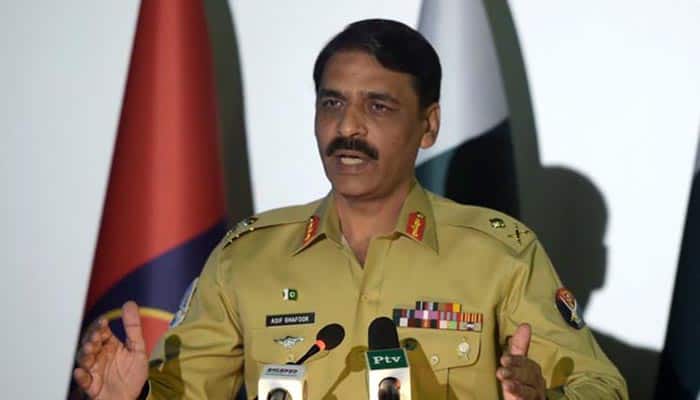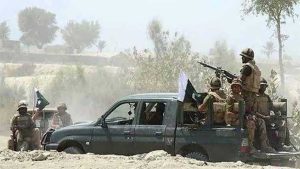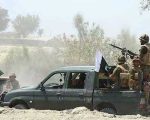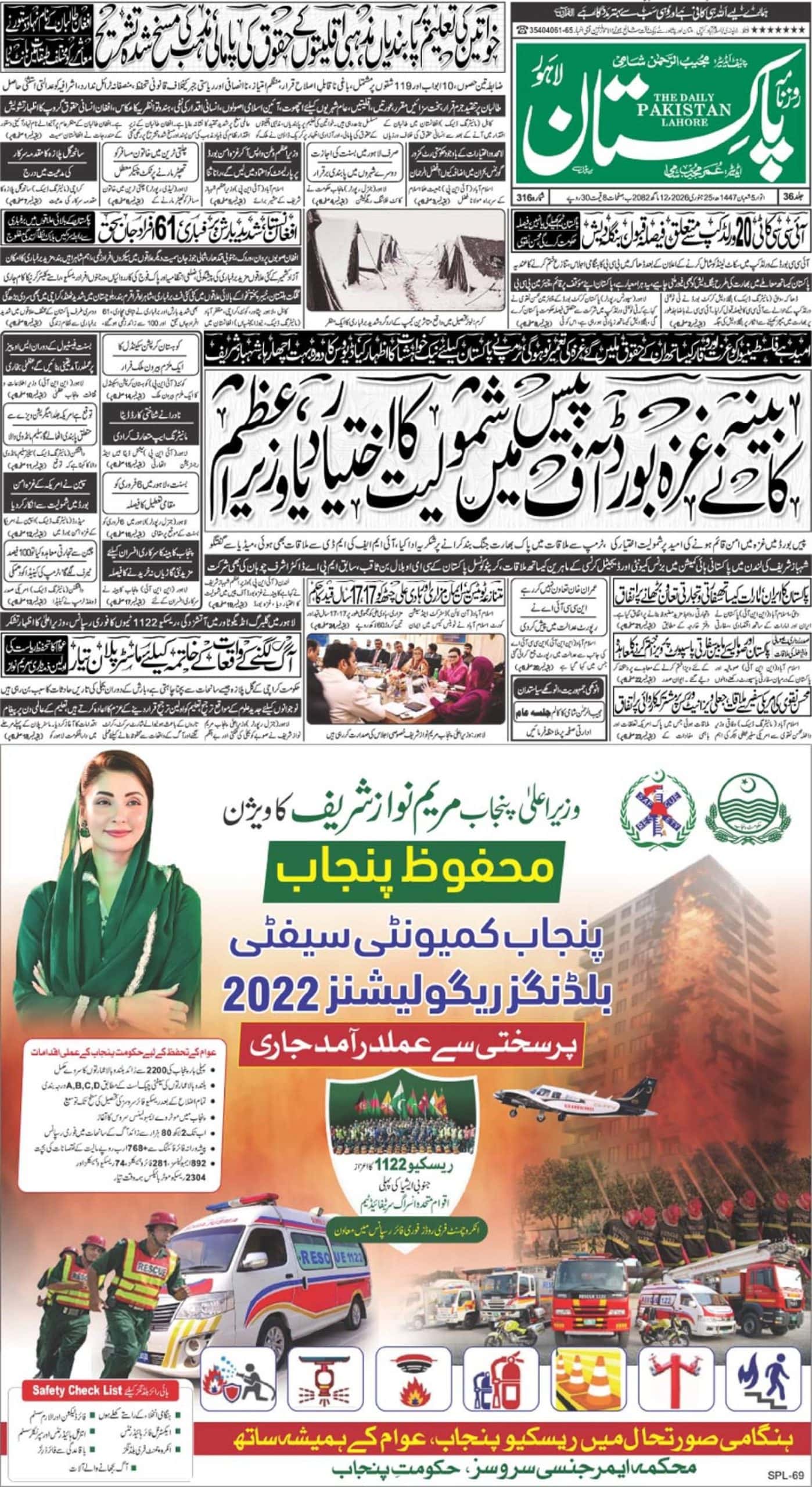RAWALPINDI – The spokesman for Pakistan’s armed forces has said the resolution of lingering Kashmir dispute is inevitable for reduction of tension in the region.
Talking to CNN Wednesday, Director General ISPR Major General Asif Ghafoor noted that non-resolution of the dispute is an obstacle in the way of peace in the region.
Referring to the Indian atrocities in occupied Kashmir, Major General Asif Ghafoor said there will surely be the Kashmiri reaction if India goes ahead with the oppressive measures. He said there is also UN report on the Indian gross human rights violations in the held valley.
He also urged the international community to assist Pakistan in the country’s fight against terrorism instead of levelling allegations alone.
The head of military’s media wing was asked if Pakistan will make “an increased effort” in the aftermath of the Pulwama attack to root out militant groups that might “destabilise the situation in [Indian-occupied] Kashmir”. “For sure,” the DG ISPR responded.
“Anybody who operates from Pakistan [against other countries] is … we feel that it is not in the interest of Pakistan. Instead of blaming Pakistan, the world should assist Pakistan, facilitate Pakistan in getting rid of such organisations.”
He also denied that Jaish-e-Muhammad (JeM) — the group that accepted responsibility for the Feb 14 attack in Indian-occupied Kashmir’s Pulwama district — had made any claim about the attack “from within Pakistan”.
“Jaish-e-Muhammad does not [formally] exist in Pakistan,” he insisted. “It has been proscribed by the United Nations [as well as] by Pakistan.”
Earlier this week, the government had decided to launch a “decisive” crackdown against militant groups. Authorities have already taken over administration of multiple mosques and seminaries that were said to be linked to extremist groups including the JeM and Jamaatud Dawa (JuD).
https://en.dailypakistan.com.pk/headline/govt-takes-control-over-dozen-banned-outfits-mosques-madrasas-in-islamabad-punjab/
The Ministry of Interior yesterday announced that 44 members of banned outfits, including Mufti Abdul Raoof and Hamad Azhar, had been taken in “preventive detention”.
However, the DG ISPR clarified that Pakistan was not taking these measures “under anyone’s pressure”.
When asked about the recent standoff between Islamabad and New Delhi — which had resulted from India’s violation of Pakistani airspace last week — Ghafoor said: “The ball is in the Indian court. Should they decide to escalate [tensions] more, the situation will go bad.”
The DG ISPR said Pakistan released the Indian pilot as a goodwill gesture. “It is now up to India as to what steps it takes for de-escalation.”
He added that both countries had increased the number of troops posted along the Line of Control (LoC) as the situation there remained tense.
In order to understand why the Pulwama attack took place, the DG ISPR advised India to introspect instead of “looking towards framed allegations”.
“The answer to this question [of why the Pulwama attack took place] lies in the United Nations Human Rights Commission’s report [on Kashmir].”
https://en.dailypakistan.com.pk/headline/reuters-exposes-indian-lies-about-balakot-air-strikes-and-damages-by-releasing-actual-images/
The report, which the UN said was the first-of-its-kind for Kashmir, was released last year and highlighted “chronic impunity for violations committed by [Indian] security forces”.
“When you suppress a population to the extent that they are being killed, raped, being shot with pellet guns, there is a natural reaction,” Maj Gen Ghafoor said.
He also rubbished India’s claims of having targeted a JeM establishment in Balakot which resulted in the killing of “a very large number of militants”, saying “not a single brick was harmed and no bodies were found”.
“Indian claims are false,” he stated and pointed out that Indian officials themselves have admitted that they cannot determine the number of casualties inflicted.
India and Pakistan came to the brink of war this week as tensions escalated following a suicide car bombing that killed at least 40 Indian paramilitary police in Indian-occupied Kashmir. India accusing Pakistan of harbouring the Jaish-e Mohammad group behind the attack, which Islamabad denied.
The two nuclear-armed countries then engaged in an air battle and India lost jets in it after carrying out an air strike on what it said was a camp of Jaish-e-Mohammad, considered a terrorist group both by India and Pakistan.
https://en.dailypakistan.com.pk/world/indian-surgical-strike-in-pakistan-a-botched-operation-us-think-tank/
Indian authorities said that 12 Mirage 2000 jets carrying 1,000 kg (2,200 lbs) bombs carried out the Feb 26th attack.
Pakistan has disputed India’s account, saying the operation was a failure that saw Indian jets, under pressure from Pakistani planes, drop their bombs on a largely empty hillside.
Pakistan also captured Indian Air Force (IAF) pilot Abhinandan Varthaman after his MiG-21 fighter jet was shot down during a dogfight near the Line of Control (LoC) on February 27. He was released by Islamabad on Friday night as a “peace gesture”.
https://en.dailypakistan.com.pk/headline/indian-fighter-jet-crashes-in-badgam/
While India has accused Pakistan of supporting the militants and having a “direct hand” in the incident, Pakistan, in turn, has rejected the allegations, accusing India of being responsible for human rights violations taking place in Kashmir.














